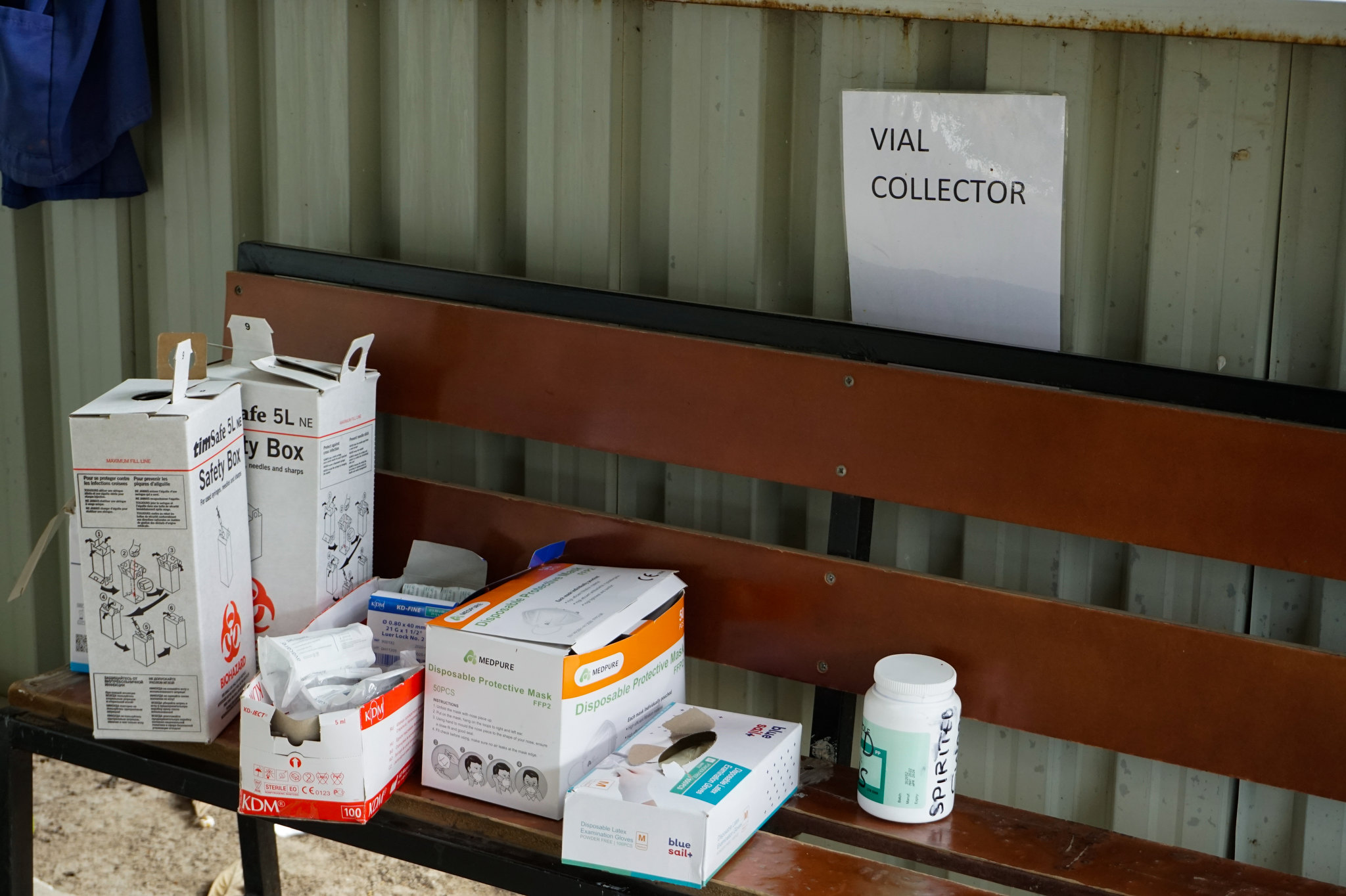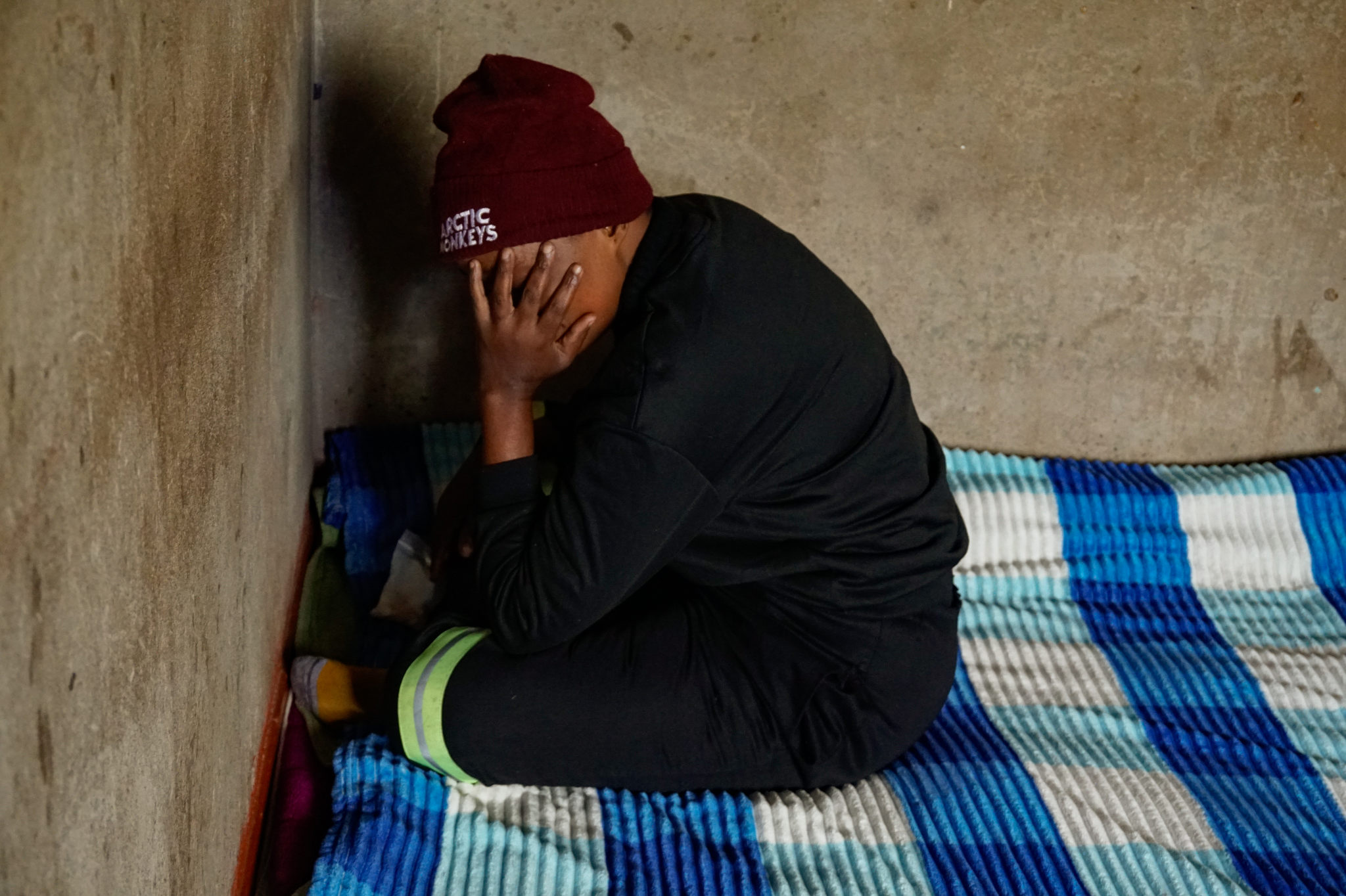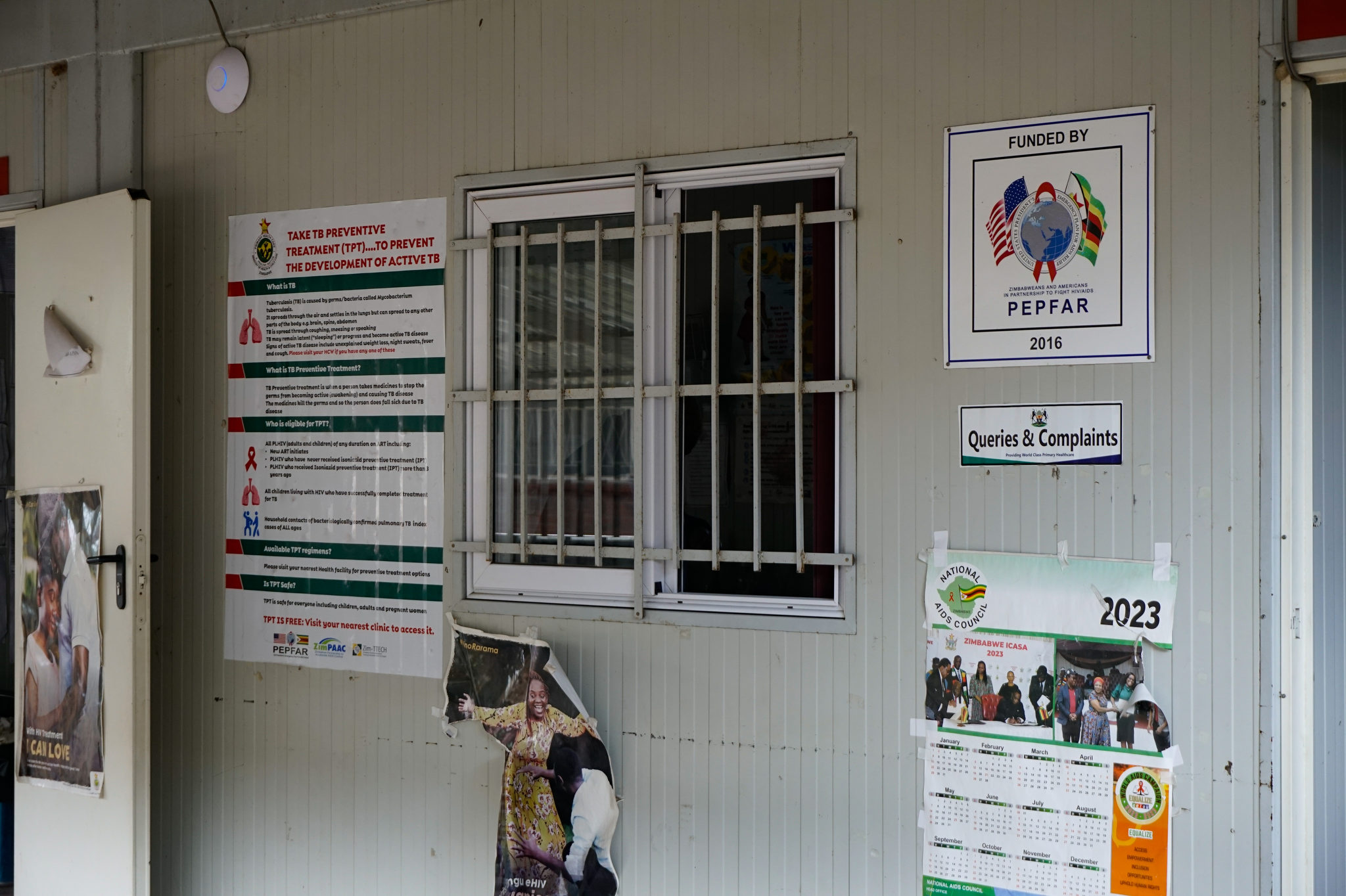HARARE, ZIMBABWE — Precious rarely takes her medication in public. If she must, she keeps the pills in an unmarked case and discreetly opens it inside her handbag before taking the medication. Even at home in Mabvuku, a suburb east of Harare, Precious makes sure the pills remain in her secret place — the unmarked case. The 31-year-old has her reasons.
In 2004, Precious, who asked to use her middle name for fear of stigma, was diagnosed with HIV. She was put on antiretroviral therapy. Soon after, she moved in with her cousin and divulged her status.
“She then broke the news to her friends. News spread that I was on antiretroviral treatment,” Precious says.
The mother of two was devastated. She felt betrayed. “I thought that she was going to keep the issue a secret when I confided in her,” she says.
Enraged, Precious went home and poured the case of pills into the toilet. For 12 years, she stopped taking medication and resolved to keep her status a secret. Even now, Precious — who is a sex worker — has not shared her HIV status with the men she has been intimate with. (Sex work is no longer a crime in Zimbabwe.)
Precious is one of many Zimbabweans living with HIV in a country that was among the worst affected by the epidemic. The first national estimate, produced in 2003, showed that 24.6% of the country’s adult population (ages 15 to 49) was infected.
But in the last few years, Zimbabwe has managed to reduce its HIV prevalence. By 2022, that HIV prevalence figure dropped to 11%, according to data from the Joint United Nations Programme on HIV/AIDS, known as UNAIDS.
Zimbabwe is also one of the few countries in the world that, according to a July report by UNAIDS, has achieved the 95-95-95 targets at national level. This means that 95% of people living with HIV are aware of their status, 95% of them are on medication, and 95% of those on medication have a suppressed viral load.
Despite these significant strides, there is little cause for celebration in the area of stigma and discrimination, which are on the rise. In a 2022 Stigma Index survey, a tool that measures stigma and discrimination experienced by people living with HIV/AIDS, 69.7% of people living with HIV reported experiencing stigma or discrimination, up from 65.5% in 2014, according to the nonprofit Zimbabwe National Network of People Living with HIV, known as ZNNP+. And according to a UNAIDS update this year, about 30% of men and women aged 15 to 49 in Zimbabwe held discriminatory attitudes toward people living with HIV.
Experts caution that the battle against stigma (negative attitudes and beliefs) and discrimination (actions based on those beliefs) remains vital in Zimbabwe.
Bernard Madzima, CEO at National AIDS Council, worries that the rise in stigma and discrimination could affect Zimbabwe’s chances of attaining the UNAIDS goal to end the HIV/AIDS epidemic by 2030, as well as increase the burden on health services.
“If people are afraid of being stigmatized, they will not present themselves for HIV testing and or will not access treatment services. This means that these people will not have their viral load suppressed and remain capable of infecting anyone that they engage in sex with,” Madzima says.
When they skip medicine, they end up with full-blown AIDS, agrees Tonderai Mwareka, stigma index coordinator at ZNNP+. They are also more vulnerable to opportunistic infections, infections that occur more frequently and are more severe in people with weakened immune systems.
Sex workers, transgender people and people in prison are among those most affected, says Mwareka, as they face double stigma based on both their HIV status and their occupation, sexual orientation or incarceration.
“I make sure that I take my medication in the morning to ensure that even if I bring a client home, they would not know about my status.” Precious
In Precious’ case, when her cousin noticed she was no longer taking medication, she lied. She told her cousin that she had gone for another checkup and was told to stop taking medication because she was negative.
“I said maybe the machine had made an error,” Precious says.
She did not disclose her status to her clients either, as she worried how that might affect her sex work. Although she says she advocated for use of protection, some clients preferred not to.
For the 12 years Precious didn’t take any HIV medication, she struggled with headaches and dizziness and self-medicated with painkillers. In 2015, Precious relocated to another town and temporarily stopped sex work to start a new life with her newfound boyfriend. Because of the dizziness and headaches, a niece who stayed in the same town and was also on HIV treatment encouraged her to get tested.


“I went to a local clinic, got tested and was put on treatment,” she says. She didn’t tell her niece that she’d found out about her status 12 years earlier.
Precious was put on medication again. Since she had not told her boyfriend about her status, she kept the medication at her niece’s place and went there each day for her dose. Whenever she ran out of medication, her niece would collect them on her behalf. But this arrangement only lasted for a year. She says she found out that her niece had been revealing her status, and so she quit taking her medication again, this time for six years.
It was when she moved to Harare to resume sex work in 2022 that things changed. Precious attended an outreach program by New Start Center, an organization that offers HIV testing and counseling services, where she learned about the importance of staying on medication and the risks of reinfection. She then resumed her medication.
Precious believes that her health could have worsened had she not resumed her treatment. But she still opts to keep her status a secret because of stigma. If people found out, the news would spread fast, she says, and she could lose clients.
“I make sure that I take my medication in the morning to ensure that even if I bring a client home, they would not know about my status,” she says. “Even if they sleep over, I always find tricks to take my treatment without them noticing.”
“We will make sure that everyone is reached and no one is left behind.” Owen Mugurungi Ministry of Health and Child Care
The main cause of increased stigma and discrimination, Mwareka says, is lack of knowledge. He says that in the 1990s and early 2000s, there was a lot of investment in HIV messaging in both print and broadcast media.
“Almost every corner you passed had a poster about HIV/AIDS. But this is not the case anymore,” he says. “We relaxed a bit thinking that we had won the war, but the effects are now coming out.”
Owen Mugurungi, who directs the Ministry of Health and Child Care’s AIDS and tuberculosis unit, finds the rise in stigma and discrimination worrying. He blames misconceptions and false information around HIV spreading through social media. The government will ramp up its efforts to address the issue by ensuring proper information is available on all media channels, including social media platforms, he says.



“We want it to be at zero stigma, or less than 5%, and the key drivers for us to do it is through community education,” he adds.
Mwareka would like to see a return to robust HIV awareness campaigns. But while ZNNP+ leads awareness campaigns and HIV disease management programs, he says, they have limited resources and cannot cover the whole country.
ZNNP+ isn’t the only one affected by lack of resources. A fraught economy has caused the Zimbabwe government to invest less in HIV prevention as well, according to 2022 planning documents for the United States President’s Emergency Plan for AIDS Relief program in Zimbabwe, which notes that “declining economic conditions and fiscal space have exacerbated the difficulties in mobilizing domestic resources for health, a plight that has been exaggerated further by the COVID-19 pandemic.”
“The times I went to fetch water at a well in my neighborhood, people would say if I fetched the water, I may cough and the virus will contaminate the water.” Caroline
Caroline, who asked to use her first name for fear of stigma, believes that although stigma and discrimination are still rife in Zimbabwe, things have slightly improved. The soft-spoken mother of one says that, when she was diagnosed with HIV in 2008, even her family members were too embarrassed to escort her to the hospital. As a result she missed some appointments. But she was lucky because, at the time, hospital staff would follow up if she missed checkups.
At home, the 39-year-old says she had a designated plate, cup and spoon, and no one wanted to eat from the same plate with her.
“I had a niece that I took care of since she was 3 months. She got used to being around me. We could eat from the same plate. But when I was sick, her mother beat her for eating from my plate, assuming she would get infected,” Caroline says. “It affected me deeply.”



Even when she got better and didn’t appear visibly sick, the stigma did not stop. “The times I went to fetch water at a well in my neighborhood, people would say if I fetched the water, I may cough and the virus will contaminate the water,” she says.
At least people are now more accepting that a person with HIV can live longer, she says, while before, they viewed it as a death sentence.
Despite the prevalence of stigma, Caroline still holds out hope. “We will get to a point where we will be able to eliminate HIV — if people adhere to medication, and if maybe an injection that one may get once a year will help ensure that people adhere to treatment,” she says.
Source link : https://globalpressjournal.com/africa/zimbabwe/zimbabwes-goal-end-aids-close-health-experts-worried/
Author :
Publish date : 2023-11-30 08:00:00
Copyright for syndicated content belongs to the linked Source.





